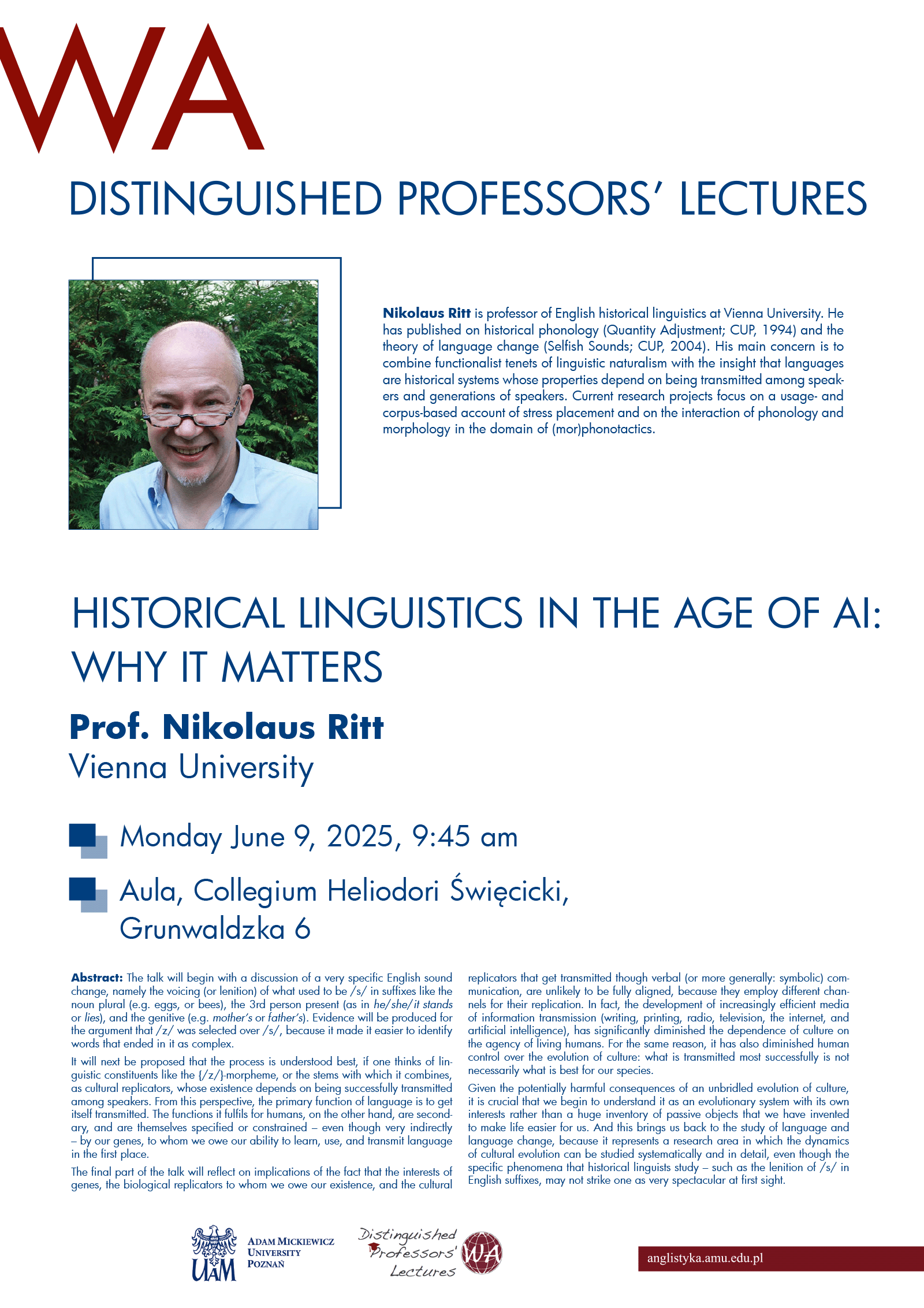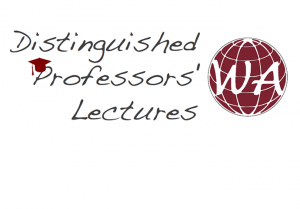Time: Monday 9 June 2025 @ 9:45
Venue: Aula, Collegium Heliodori Święcicki, Grunwaldzka 6
Speaker: Prof. Nikolaus Ritt (University of Vienna)
Historical linguistics in the age of AI: Why it matters
Abstract
The talk will begin with a discussion of a very specific English sound change, namely the voicing (or lenition) of what used to be /s/ in suffixes like the noun plural (e.g. eggs, or bees), the 3rd person present (as in he/she/it stands or lies), and the genitive (e.g. mother’s or father’s). Evidence will be produced for the argument that /z/ was selected over /s/, because it made it easier to identify words that ended in it as complex.
It will next be proposed that the process is understood best, if one thinks of linguistic constituents like the {/z/}-morpheme, or the stems with which it combines, as cultural replicators, whose existence depends on being successfully transmitted among speakers. From this perspective, the primary function of language is to get itself transmitted. The functions it fulfils for humans, on the other hand, are secondary, and are themselves specified or constrained – even though very indirectly – by our genes, to whom we owe our ability to learn, use, and transmit language in the first place.
The final part of the talk will reflect on implications of the fact that the interests of genes, the biological replicators to whom we owe our existence, and the cultural replicators that get transmitted though verbal (or more generally: symbolic) communication, are unlikely to be fully aligned, because they employ different channels for their replication. In fact, the development of increasingly efficient media of information transmission (writing, printing, radio, television, the internet, and artificial intelligence), has significantly diminished the dependence of culture on the agency of living humans. For the same reason, it has also diminished human control over the evolution of culture: what is transmitted most successfully is not necessarily what is best for our species.
Given the potentially harmful consequences of an unbridled evolution of culture, it is crucial that we begin to understand it as an evolutionary system with its own interests rather than a huge inventory of passive objects that we have invented to make life easier for us. And this brings us back to the study of language and language change, because it represents a research area in which the dynamics of cultural evolution can be studied systematically and in detail, even though the specific phenomena that historical linguists study – such as the lenition of /s/ in English suffixes, may not strike one as very spectacular at first sight.

About the speaker
Nikolaus Ritt is professor of English historical linguistics at the University of Vienna. He has published on historical phonology (Quantity Adjustment; CUP, 1994) and the theory of language change (Selfish Sounds; CUP, 2004). His main concern is to combine functionalist tenets of linguistic naturalism with the insight that languages are historical systems whose properties depend on being transmitted among speakers and generations of speakers. Current research projects focus on a usage- and corpus-based account of stress placement and on the interaction of phonology and morphology in the domain of (mor)phonotactics.
About the lecture series
WA Distinguished Professors’ Lectures Series features internationally renowned scholars visiting the Faculty of English to share their research and professional expertise with the faculty and students.
